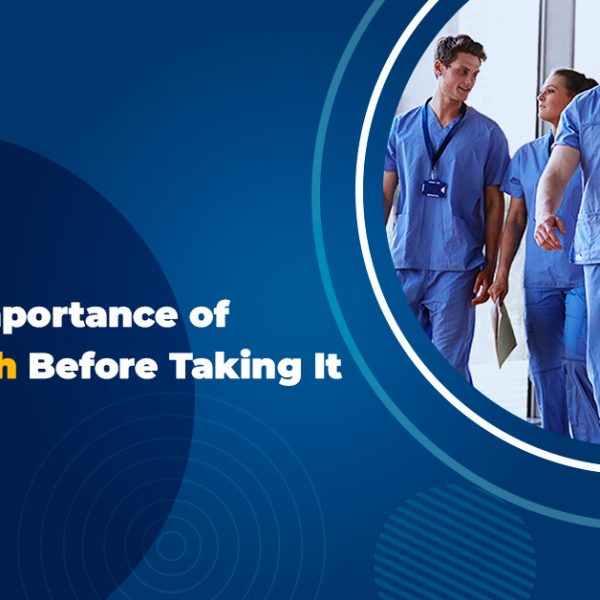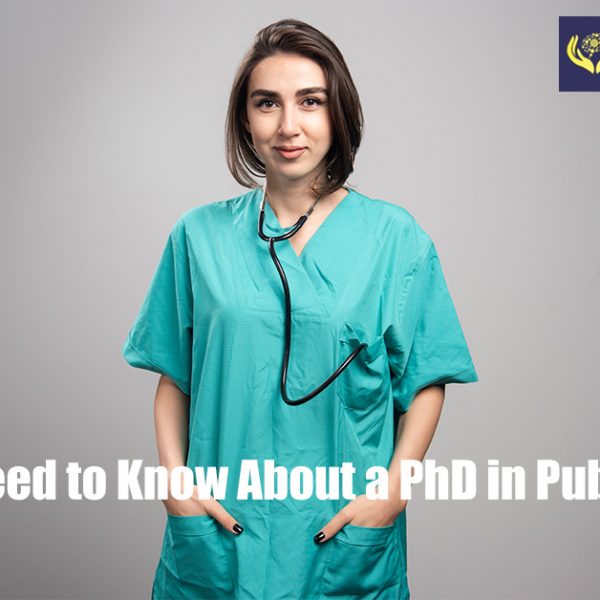Blog Summary
More African students show interest in pursuing public health degree courses as the field has seen tremendous development in Africa and offers scope for career progression. WHO, UNICEF, AMREF, and other private organizations have collaborated with the local governments in bringing about positive changes in Africa. Public health professionals are critical and play wide-ranging roles. They analyze health issues, initiate awareness, formulate policies, first responders in times of calamity, educate and empower minority groups, innovative solutions to tackle problems, and many more. Public health careers are promising, influential, and in demand across Africa. You can work as an epidemiologist, public health analyst, environmental health officer, etc. Become a public health professional by pursuing online BPH programs at TSL-UCN.
The prominence of public health bachelor’s degree jobs and degrees has been widely prevalent across African countries in recent years. Many prospective students look up the answer to “whether public health is a good career,” which reveals discrepancies in their understanding of the careers.
Public health degree plays an important role in the current situation like COVID-19 pandemic and the professionals ensure the whole community health and wellness. This article aims to explain what a public health field is all about and its prospects to aspirants from African countries and let them know if careers in this sector are promising and worth pursuing. So, without further ado, let’s get into it.
Public Health in African Countries
Before we begin, we first need to understand the state of the public health sector in African countries to get a clearer picture. Though public health in African countries has grown considerably in the last decade, it is merely not enough for the continent’s vast demand and shortcomings. The continent is home to nearly 54 countries diverging in various aspects such as culture, traditions, economic growth, literacy rate, political stability, and many more, which adds to its complexity.
Many international NGOs such as the World Health Organization (WHO), United Nations Children’s Fund (UNICEF), AMREF (African Medical and Research Foundation), and other private organizations have collaborated with the local governments in fighting common diseases, uncontrolled ailments, and famine among the masses and made many positive changes to these developing societies.
Though the common issues with health care are similar across the board, African countries’ governments face several challenges, including lack of funds, disorganized governance structure, and poor infrastructure. These challenges are also compounded by other fundamental shortcomings such as poverty, epidemics, and an enlarging brain drain trend as homegrown medical professionals tend to migrate abroad in search of better career propositions.
What’s the Solution?
While the issues may seem endless and challenging to tackle at the surface, one must remember that we can do anything with adequate planning and proper execution. So, how does one tackle and manage the public health sector as a whole? Who has the skills and qualifications to do that? Well, if you haven’t guessed already, the answer is public health professionals.
Yes, a qualified professional in this sector can analyze, manage, and transform a much better career. Though state governments are progressively improving their spending to enhance the public health sector, many experts and studies point that these expenditures need better management to improve their effectiveness to the end-user. Proper professionals in place can exponentially enhance the industry and help transform society.
How Can Public Health Professionals Improve the Condition?
Public health graduates are medical professionals who aim to serve the common goal of improving healthcare for individuals and society by various means. The variety of roles in the public health space is massive, as we will discuss further into the article; it can range from medical to analytical and statistics and everything in-between. The multiple outlets of the public health system are as follows:
- Healthcare companies and hospitals
- Private and public health agencies at different levels
- Public safety providers
- Recreation and arts-associated agencies
- Commercial and charitable organizations
Candidates who undertake the profession should be well-versed in various biology, chemistry, physics, and math disciplines to adequately perform their assigned roles.
Various Objectives of Public Health Services
Public health professionals are some of the most critical professionals in society. They play a wide range of public health roles with varying agendas; here are some of them.
- Observing and analyzing the health status of the public and identifying issues and formulating solutions to combat them.
- Bringing awareness of public health issues and encouraging positive and preventive actions against them.
- Collaborate with policymakers, regulators, and authorities to improve public health policies and reduce risks to the public on various fronts.
- Implement strategies and employ suitable applicants for public and private healthcare.
- Investigate and identify work and general health hazards and initiate a change to rectify them by reporting them to the appropriate authorities.
- Be first responders during a time of a natural or human-made calamity.
- Formulate responses to contain and reduce the spread of a disease during a pandemic or epidemic.
- Watch over a remote community and ensure that they get the required medical services.
- Develop necessary contingencies to tackle medical obstacles due to a high surge or shortage of services.
- Identify trigger points of accidents and propose solutions for said triggers.
- Look for ways to improve efficiency and effectiveness in current processes.
- Discover and present new and innovative solutions to tackle issues.
- Educate and empower weaker sections of the community with better health practices and services.
Public health professionals are the right people who can improve public health offerings for any nation.
Is Public Health a Good Career?
So, now for the titular question, is pursuing public health bachelor’s degree jobs a good idea? All evidence points to a promising career path that is both influential and in-demand across the African continent. Not to mention the sheer number of career options and specializations one can pursue. It is also an excellent option for those who would like to keep their options open for the future.
As a public health professional, you will able to earn better than many other professions. You will be eligible for c-level positions with the appropriate experience and higher education background quicker than other career paths. If you are wondering why choose a career in public health? It is one of the most dynamic yet fulfilling career paths that you can undertake.
A degree can be the pathway to a successful and fulfilling career with excellent job growth in private or government agencies. Not just physical health, the respective officers can also find roles in mental health institutions, public health education institutions, research, and education.
Career opportunities are not mundane and unique for those who like to stand apart from the rest. You could take up an environmental analyst role and get away too far lands to learn new things while you are at it, or you can palace yourself in a busy city educating the masses on better sanitation procedures. The choice is yours.
The career also boasts some of the best job security among other sectors. You will also be able to find employment for your profession in other first-world countries if you feel the need to immigrate. So, in all, a choice to pursue promising public health bachelor’s degree jobs is a bright idea for any aspirant.
Choices can be overwhelming, so if you wonder what some of the influential and well-paid public health bachelor’s degree jobs are, one can pursue a Public health degree; check out the following to get a better idea.
- Epidemiologist
An epidemiologist looks into the origins of diseases and other public health issues to keep them from reoccurring or spreading. They collaborate with private and public organizations and report the findings to authorities, health responders, and the public.
- Public Health Analyst
Public health analyst professionals provide practical solutions to social problems that affect a community’s health by analyzing research. They may conduct site visits to evaluate an organization’s performance or calculate healthcare programs’ costs in a specific region.
- Environmental Health Officer
Environmental health officers are responsible for analyzing, monitoring, and enforcing health and hygiene legislation. They also investigate an incident, such as pollution, noise, toxic contamination, pest infestation, or an outbreak of food poisoning.
- Community Health Worker
Community health workers are usually accountable for the health of community members who may not be cared for by traditional medical institutions. Responsibilities often include the uninsured, migrant workers, and immigrants from all different cultural and ethnic backgrounds. Community health workers are responsible for assuring that culturally diverse populations and underserved communities acquire proper medical attention.
- Health Education and Promotion
Health educators instruct people about the practices and habits that foster wellness. They produce and execute strategies to enhance the health of communities and individuals. Community health workers present a direct link between healthcare professionals and the community.
- Public Health Manager
Public health managers are in command of managing healthcare standards, coordinating treatment programs, overseeing finances, and providing adequate healthcare services. Additionally, managers are in charge of human resources inside a healthcare system and healthcare policies and marketing new treatments to the public.
In essence, public health degree jobs are in abundance. If you are a bachelor’s or a master’s degree holder looking for better careers, your options are limitless.
Online BPH Program: The Best Way to Pursue It
Taksha Smartlabz (TSL) acclaimed online degree is offered with an academic partnership with the University of Central Nicaragua(UCN), is on-par with our in-college offering. The online programs blend online flexibility with hands-on training to help prepare students for successful public health bachelor’s degree jobs while the student keeps his/her current career.
Eligibility for an Online BPH Program
To be eligible for the program, one has to meet any of the following educational prerequisites;
- A higher national diploma in public health specialization from a Recognized University
- An A-Level + 2-/3-year diploma in the Relevant Field
- An O-Level + 3-year certificate in public health specialization or a Relevant Field
Why Should You Choose TSL-UCN for Your Online BPH Degree?
- Our flexible online program will allow you to work while you pursue a full-time UG degree.
- The program offers an opportunity to learn and collaborate with an extensive collection of students worldwide.
- Learn from a patented and interactive block-based learning module proven to improve student learning efficiency and reduce academic stress.
- A state-of-the-art learning management system that allows the students to track their performance quickly.
- TSL-UCN’s online bachelor of health is an internationally recognized degree that will add value to your resume irrespective of where you choose to practice.
- An extensive repository of course and supporting materials is available virtually throughout the program for effective learning.
With that, we hope that you can now understand the viability of public health bachelor’s degree jobs and are inspired to pursue one. Good luck!












